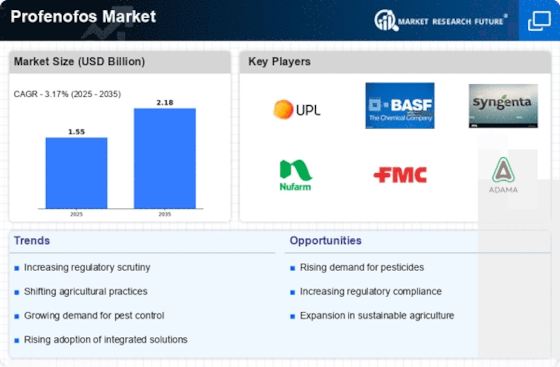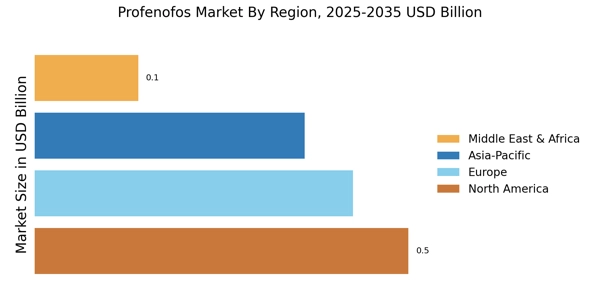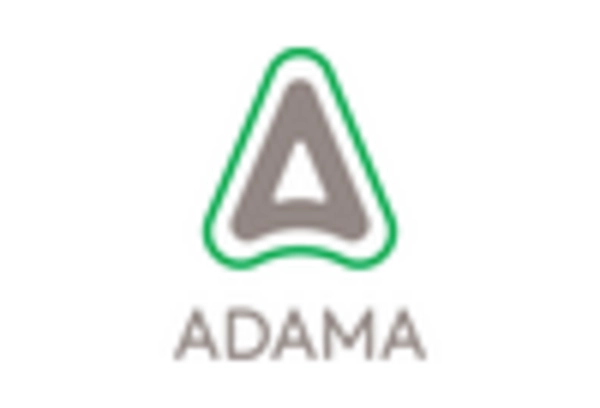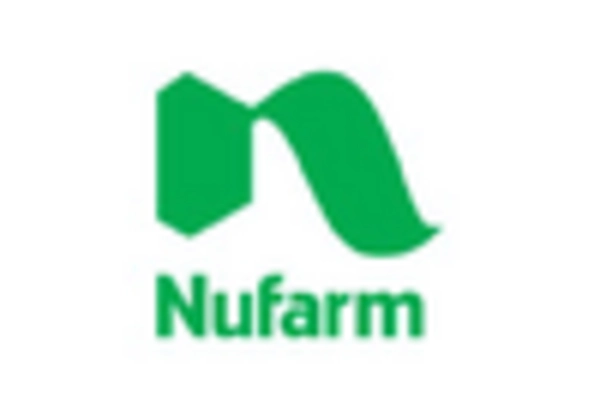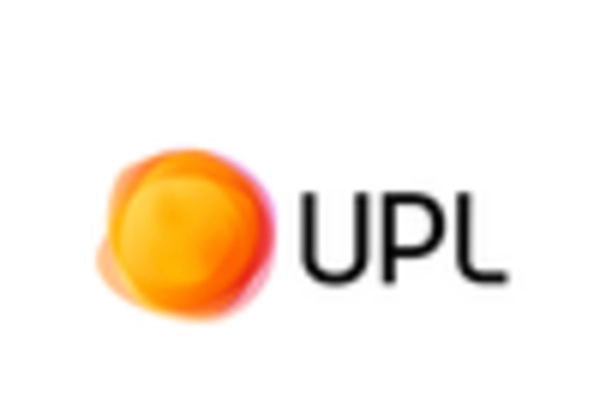Rising Pest Resistance
The increasing prevalence of pest resistance to conventional pesticides is a notable driver in the Profenofos Market. As pests evolve and develop resistance, farmers are compelled to seek alternative solutions that are effective yet safe for crops. Profenofos Market, being a broad-spectrum insecticide, offers a viable option for managing resistant pest populations. The market data indicates that the demand for Profenofos Market has surged by approximately 15% in regions where pest resistance has been documented. This trend suggests that the Profenofos Market is likely to experience sustained growth as agricultural stakeholders prioritize effective pest management strategies.
Expansion of Crop Varieties
The expansion of crop varieties cultivated across various regions is a critical driver for the Profenofos Market. As farmers diversify their crops to meet changing consumer preferences and market demands, the need for effective pest control solutions becomes paramount. Profenofos Market is particularly effective against a wide range of pests that threaten diverse crops, making it a preferred choice among farmers. Recent market analysis shows that the introduction of new crop varieties has led to a 10% increase in Profenofos Market usage in specific agricultural sectors. This trend suggests that the Profenofos Market is poised for growth as crop diversification continues.
Increased Awareness of Crop Protection
Increased awareness of the importance of crop protection among farmers and agricultural stakeholders is driving the Profenofos Market. As the agricultural sector faces challenges from pests and diseases, the understanding of effective pest management solutions becomes crucial. Educational initiatives and outreach programs are fostering a greater appreciation for the role of Profenofos Market in safeguarding crop yields. Recent surveys indicate that 70% of farmers recognize the benefits of using Profenofos Market for pest control, leading to a projected 18% growth in its market share. This heightened awareness suggests that the Profenofos Market is likely to expand as more stakeholders prioritize effective crop protection strategies.
Technological Advancements in Agriculture
Technological advancements in agricultural practices are significantly influencing the Profenofos Market. Innovations such as precision agriculture and integrated pest management systems are enhancing the efficiency of pesticide application. These technologies allow for targeted use of Profenofos Market, minimizing waste and maximizing effectiveness. Market data reveals that the adoption of precision agriculture techniques has led to a 20% increase in the application efficiency of Profenofos Market in certain regions. This trend indicates that as technology continues to evolve, the Profenofos Market may witness increased demand driven by the need for more efficient pest control solutions.
Regulatory Support for Integrated Pest Management
Regulatory support for integrated pest management (IPM) practices is emerging as a significant driver in the Profenofos Market. Governments are increasingly promoting IPM as a sustainable approach to pest control, which often includes the use of chemical solutions like Profenofos Market in conjunction with biological and cultural practices. This regulatory shift is likely to enhance the acceptance and usage of Profenofos Market among farmers. Market data indicates that regions with supportive regulatory frameworks have seen a 12% increase in Profenofos Market applications, highlighting the potential for growth in the Profenofos Market as IPM practices gain traction.


